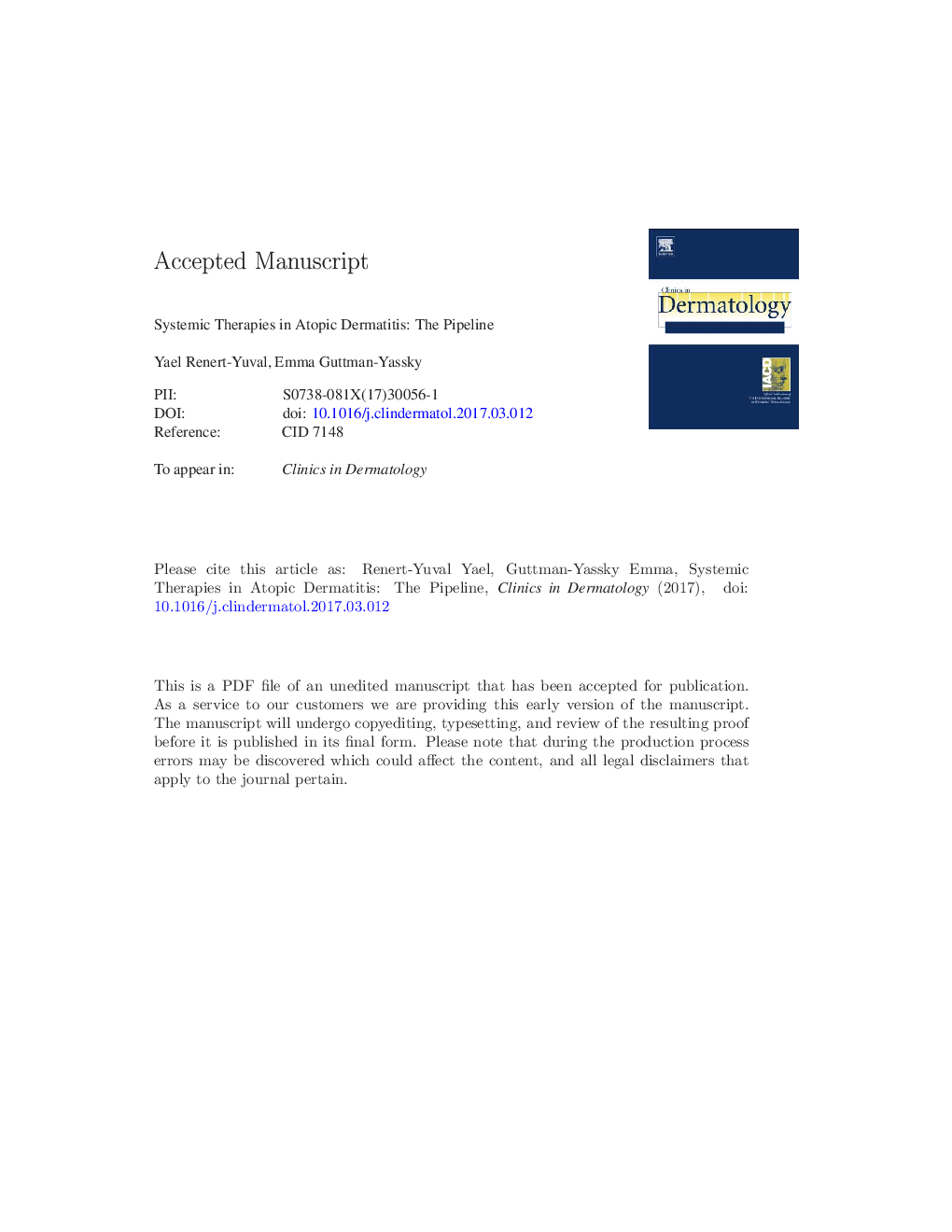| Article ID | Journal | Published Year | Pages | File Type |
|---|---|---|---|---|
| 5645659 | Clinics in Dermatology | 2017 | 33 Pages |
Abstract
Atopic dermatitis (AD), the most prevalent inflammatory skin disease, is characterized by robust T-cell activation. The disease has several subtypes, all having a common T helper type 2 (Th2)/Th22 polarization, but it also displays differential immune skewing, such as increased Th17/interleukin 23 skewing in the skin of intrinsic, Asian, and early pediatric AD patients. Current systemic treatments for moderate to severe AD are largely unsatisfactory, associated with significant adverse effects and low compliance. A large unmet need exists for better therapeutics for moderate to severe AD. The translational revolution, first transforming the psoriasis treatment paradigm, is now becoming applicable for AD, with multiple targeted drugs being investigated in trials. The new treatments often have increased tolerability and specificity and higher efficacy compared with conventional treatments. The clinical testing of these targeted drugs can also provide an opportunity to further elucidate AD pathogenesis by dissecting the contribution of specific cytokines to the disease phenotype. By reviewing developing therapeutics for AD according to their pathway-specific mechanisms, this contribution also outlines the complex molecular characteristics of AD.
Related Topics
Health Sciences
Medicine and Dentistry
Dermatology
Authors
Yael MD, Emma MD, PhD,
